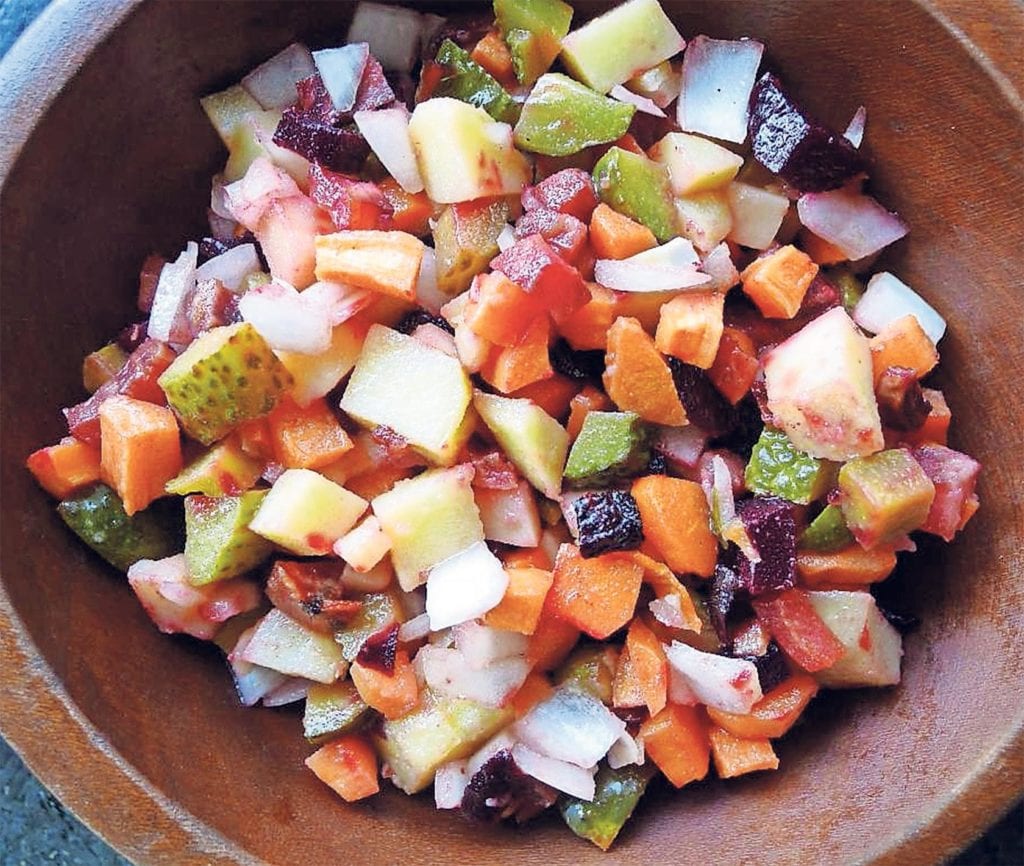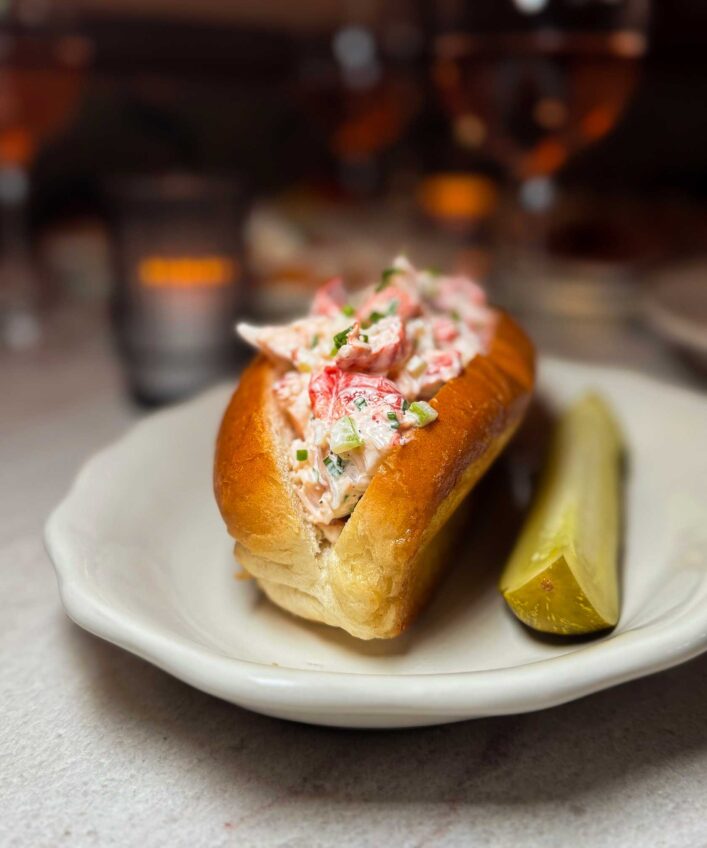
Winter came early this year, but the Belarusian cucumber farmers at my local market didn’t care. Their cucumber plants were long gone, their fruits having been turned into pickles, but they did have beets.
Very exciting beets, if one were to take their enthusiastic vibes at face value.
I like beets, but not in an every-single-day way.
My Belarusian friends, clearly, were deep in the lifestyle, and I wondered how they sustained that kind of pace all season long.
I speculated that they must have tricks beyond pickled, boiled and borschted, and the answer turned out to be a little of all three.
When I asked the bearded, rosy-faced gentleman about his favorite beet dishes, his grin widened.
Then he leaned in, using his fingers to enumerate the ingredients: “Beets, carrots, potatoes — cooked. Chopped onions and pickles. Little bit of oil.”
“Cut small,” added his wife, bundled in a long blue wool coat and red scarf to match her husband’s cheeks.
“3/8-inch,” he said, holding two callused worker fingers in the universal symbol for small.
They call it beet vinaigrette, she says.
If it had a different name back in Olshany, the village where she learned the dish from her grandmother, she didn’t know it.
The acid side of the vinaigrette comes from the pickles, which are serious business back home. Olshany is known across Belarus as the nation’s cucumber capital.
In large greenhouses, each heated with multiple wood stoves, they start their cucumber early as possible in spring, and harvest them as late as possible into the fall. The rest of the time, it’s pickles and beets.
But if you’re looking for the kind of beet vinaigrette that comes with chevre cheese and balsamic, Belarus is not your place.
To avoid confusion, I call it the Christmas Sweater — not only for its red beets and green pickles, but for the cacophony of flavors and textures that should not work together but somehow do.
At home, the Christmas Sweater was a hit with the family.
The interaction of pickles and onions and potatoes was mildly spectacular, invoking the flavor of fries with a mouthful of relish, as from a bite of burger or hot dog.
We couldn’t stop eating it.
‘Christmas Sweater’
Serves 4 as a side, 2 as a main
- 2 half-pound potatoes, peeled, each cut in half
- 1 pound beets, peeled and cubed (see below)
- ½ pound carrots, peeled and cubed
- 1 medium onion, cubed
- 2 cups cubed dill pickles
- ½ cup olive oil
- Salt and pepper, to taste
Steam the potatoes until soft on the outside and still a bit stiff in the middle, about 20 minutes. Remove from heat and allow to cool.
While that is going, peel the carrots and beets, and cube them as cutely as possible. It’s best to do the beets last, or they will stain the veggies that follow.
Each vegetable will require a slightly different cubing tactic, but there are certain universals. Start by cutting each root in half, lengthwise, and lay the flat sides down. Make a series of parallel cuts,³/₈ inch apart — that’s the size of half a penny — across each half. Keep cutting in a grid until the cubes are as small and cute as can be.
Put the cubed beets and carrots in separate baking dishes and bake at 350 degrees for about a half-hour, stirring each pan once (with separate implements), until they are a little soft and a little crunchy. If they start to shrink, that’s a bit too far. Allow the beets and carrots to cool to room temperature. After that the bleeding will be mostly staunched.
While the beets and carrots cook, make sure the cutting board is clean from the beets, and cube the potatoes, onion and pickles.
When everything is cool, cubed and cute, add the salt and oil and briefly toss.






